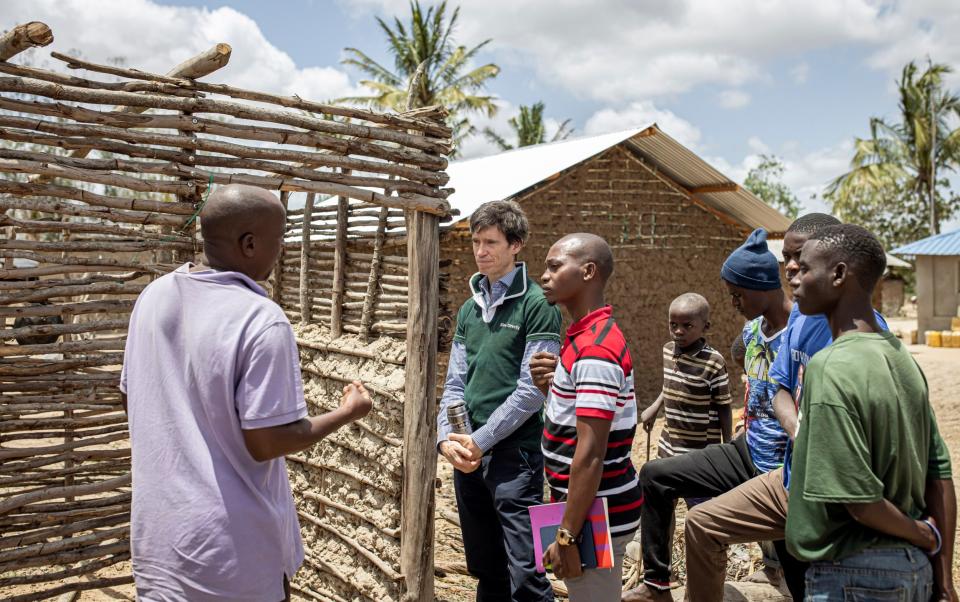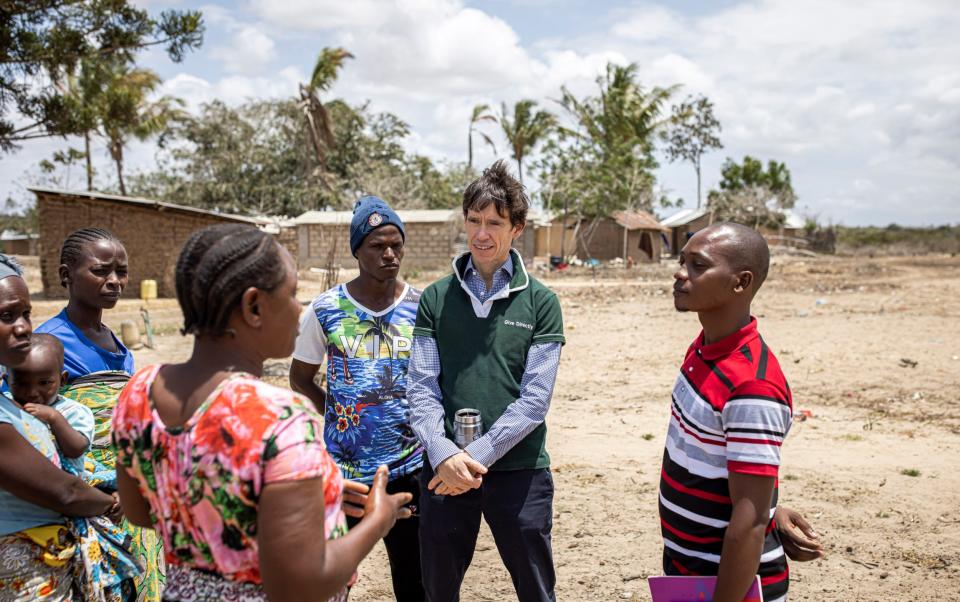Rory Stewart’s ‘GiveDirectly’ charity defrauded of almost $1m by its own workers

A charity headed by Rory Stewart, which prides itself on wiring cash directly to the world’s poor, has been defrauded of nearly a million dollars.
GiveDirectly operates by sending aid directly to impoverished people across the world through mobile money transfers – a set-up which it says is designed to empower recipients and cut out middlemen.
The charity has been operating since 2009 and extended its operations to the Democratic Republic of the Congo, one of the poorest countries on earth, in 2018.
It hoped that by wiring money directly to families it could help alleviate poverty, but the money started to go missing. By the time the fraud was uncovered, at least $900,000 had been stolen.
“In late August 2022, we started sending cash transfers to the registered SIMs, many of which were actually in the possession of these GiveDirectly staff,” the organisation wrote on its website.

The DRC is a nation wracked by decades of conflict. It is among the five poorest nations in the world, with nearly 62 per cent people living on less than $2.15 a day.
According to GiveDirectly, its workers in the Congo – including field enrollment staff, call centre operators, administrative personal and internal auditors – conspired to steal the SIM cards on which monies were sent before they could go to the intended recipients.
More than 1,700 families in DRC’s South Kivu province lost out, the New York-based NGO said.
Hundreds of would-be recipients complained about the issue, but were lied to by in-country about the missing funds, GiveDirectly revealed.
“One of the devastating details of the case is that... the fraud required suppressing recipient complaints. We know hundreds of recipients called in to complain and ask about their next transfers and were told various types of lies,” GiveDirectly’s managing director, Joe Huston, told The New Humanitarian.
The charity said 75 workers in the DRC are no longer with the organisation, though mostly this is due to contracts expiring. According to Mr Huston some were terminated after disciplinary proceedings and some may face prosecution.
‘We’re sorry... we let you down’
GiveDirectly says its donors include “individual donors, foundations, businesses and institutions”.
The $900,000 fraud came out of a total of around $7 million that GiveDirectly intended to transfer to some 5,000 households in South Kivu. Households were meant to receive one-time transfers of $392, and then $40 per month for the following two years.
GiveDirectly said it was the largest sum of money it has ever lost to fraud.
All operations in the country have been paused since January.
Normally recipients register their SIMs with independent mobile money agents, but GiveDirectly said it made an exception for the South Kivu programme due to its isolation and fragile setting.
“In this remote region, the closest agent is often a long distance away. We therefore allowed GiveDirectly’s enrollment team to register these new SIMs for recipients instead of sending them to agents,” GiveDirectly said in its public statement.
It added that a small portion of the lost funds have been recovered, but most are likely not recoverable.
“To the people who should have received cash, we’re sorry. It is our job to design systems that protect the funds that are supposed to reach you, and ultimately, we let you down,” said Mr Huston.

Mr Huston said GiveDirectly’s ongoing audits in the other African country – which it did not name – where its staff were registering SIMs for recipients have come back “relatively clean”.
“It is, of course, impossible to know perfectly how much is lost each year, but we have no reason to believe there is significant fraud not yet uncovered,” the NGO said in its public release.
It added that it is now reviewing its procedures across the organisation.
“Our hope is that people don’t learn the wrong lesson here,” Mr Huston told The New Humanitarian. “Fraud happens everywhere, including aid and cash transfers. And it’s important to talk about it.”
The former head of counter-fraud for Oxfam has previously estimated that the scale of loss to fraud in global aid programmes is between 2-5 per cent of an organisation’s income.
The Telegraph interviewed Mr Stewart in September about his organisation, with the article title reading: This man wants to give $1,000 to every poor person on Earth – but could his plan really work?
Protect yourself and your family by learning more about Global Health Security

 Yahoo Sports
Yahoo Sports 